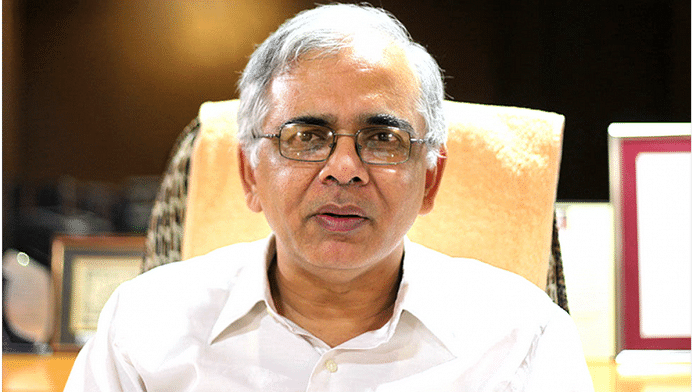New Delhi: The peer review system – or the evaluation of academic work by others in the same field – has broken down because authors can just pay to be published, says leading biologist Shekhar Mande.
The former director general of the Council of Scientific and Industrial Research (CSIR) told ThePrint that mushrooming online journals, even the reputed ones, charge an author hefty fees to post their scientific findings.
Mande said a scientific publication brought in only a very small set of editors and peer reviewers to vet this article. This introduced a lot of subjectivity and personal bias in the system, he said.
Mande spoke of the art of peer-reviewing in olden times. “Traditionally, the way knowledge advanced was that learned people got together, debated the known current facts… if someone proposed advanced material, this too was debated in a fraternity of very well-known people.”
He said noted examples of such peer reviews in ancient India took place at Nalanda and Takshashila universities, where learned people gathered to debate whether to accept a new discovery.
But in the last 100 years, the focus has been on printing scientific research, Mande said. He added: “A person who has discovered something new, now wants to announce it to the public by sending a written article to a journal.”
“The journal has either one or a set of editors… out of which, one editor would take a decision on this. And it would be reviewed by two or three peers.
“So what used to be debates among many learned people, is now reduced to opinions of only one or two people. And as we know, human opinions are always subjective.”
Mande said when such new thoughts came from a country like India, or lesser known countries, the West tended not to accept them.
“So in that sense, the peer review system is broken,” he said.
Mande emphasised that a “complete breakdown” has taken place only recently – due to the surge in online publishing and “author-pays” model.
He took the example of an infamous paper that claimed the antimalarial drug hydroxychloroquine could help treat Covid. It was published and later retracted by The Lancet journal.
Mande said: “That particular paper would not have passed a peer-to-peer review system in any other journal. But what were the arguments for accepting it by a journal like The Lancet? We don’t know.”
He added that many well-reputed journals in the world today were continuously retracting papers which have been published in the past, because they were not appropriately reviewed.
Mande has recently published this view in an article in Current Science.
‘Study science if you are a dreamer’
Mande said science was for dreamers and those who wanted to contribute fresh thoughts to knowledge.
He said: “You are best fitted to scientific work if you are driven by the passion of contributing new thoughts to the world.”
When he took over as director general of CSIR in 2018, Mande said the morals of scientists needed a boost.
“Moreover, the connection with industry has been diminishing,” he said, adding that he has focused on rejuvenating this relationship.
“An important component of science is continuous advance into new territory. Another is that while doing so, we translate it for the benefit of people,” Mande said.
He added: “That’s a very, very important aspect of science. When scientists receive financial support from the public, expectations are that scientific discoveries would eventually turn into technologies that would benefit people.”
Is all ok with CSIR stipends?
The scientist also addressed reports that PhD students at CSIR institutions were not receiving fellowships for months on end.
He said: “It was a matter of great embarrassment to me when I was director general that the fellowships were not being disbursed on time to many students.”
He said the various processes that involved collecting attendance certificates added to the delay in monthly stipends, but a lot of the delays also happened when students switched universities.
“But the work has now begun on war-footing to resolve such cases. I expect most of them will be done by September or October,” he added.
Also read: How CNG prices have taken the gas out of Delhi’s auto drivers and their livelihoods



